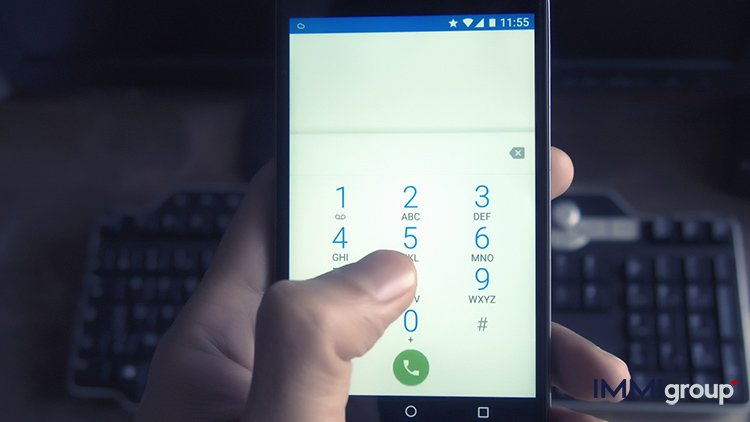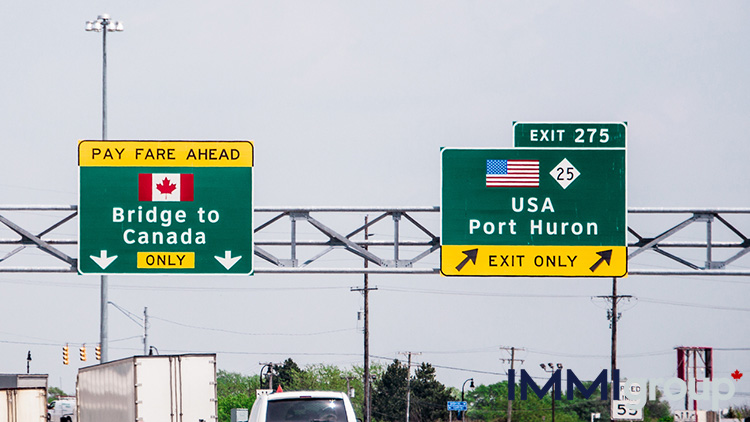Border Guards Phone Searches

What is certain is that travellers entering or leaving Canada, whether through the border, seaports, or airports, are subjected to extremely tight security measures by both Canadian border agents (CBSA) and U.S border agents (CBP). But does this mean that your privacy rights are violated?
Let’s find out by taking a look at the policies of both the CBSA and the CBP:
Can a Border Guard Look at My Phone? What are my rights?
In the spring of 2015, a man named Alain Philippon refused to share the password for his Blackberry cell phone to border agents at an airport in Halifax. As a result, Philippon was held overnight in custody and was only released on a bail of a thousand dollars.
The incident almost immediately brought renewed attention to the question of whether or not border agents have the legal right to promptly search the cell phones of those crossing the border or otherwise entering the country…a question that for many is still not fully answered to this day.
What is certain is that travellers entering or leaving Canada, whether through the border, seaports, or airports, are subjected to extremely tight security measures by both Canadian border agents (CBSA) and U.S border agents (CBP). But does this mean that your privacy rights are violated?
Let’s find out by taking a look at the policies of both the CBSA and the CBP:
CBSA (Canada Border Services Agency)
Each time you cross the border into Canada, you are automatically applying to the CBSA to enter the country. Part of that application grants the CBSA the right to question you concerning your history and examine the property that you are bringing with you into Canada. Of course, this property includes computers, tablets, and phones that are password protected.
So the short and simple answer is yes, a CBSA agent can legally look at your phone. That being said, there are still certain limits that each CBSA agent has to abide by under the Customs Act of Canada. One of those limits, and probably the biggest limit, is “reasonable cause”: A CBSA agent has the power to look through your luggage and your phone without your permission as long as they have reasonable cause for doing so. These searches can be completed without a warrant.
When looking at your phone, CBSA agents will be free to examine the device for your files, contacts, photos, videos, web history, apps, and any other kind of media that you have. If your device is password protected, then the CBSA agent will most certainly ask you to provide your password. If you refuse to provide the password, like Alain Philippon did, then the device will be held by the agent to be inspected further, and you may be detained as well.
Update: Philippon negotiated a plea deal, ending his case, so the question of whether or not the CBSA can force you to give them your password still needs to be tackled by Canada’s higher courts. In the meantime, they can.
US CBP (Customs and Border Patrol)
It’s also important to be aware of the rules regarding phone searches with the US CBP as well, because If you ever cross the border into the United States from Canada you’ll be dealing with CBP agents rather than the CBSA.
As with the CBSA, CBP agents (and ICE agents) have the authority to search through your laptops, tablets, mobile phones, MP3 Players, cameras, and any other electronic devices. However, CBP agents also have the authority to do this with or without probable cause or reasonable suspicion. The legal case for this is that exceptions to the 4th Amendment of the United States exist when conducting border searches.
With CBP phone searches skyrocketing in 2017, the Department of Homeland Security issued a new directive on January 4, 2018.
What the CBP Can Do
- CBP Border Guards can demand your code to open your phone
- CBP Border Guards can demand you put your phone on airplane mode; they will do this if you have not already done it
- CBP Border Guards can “detain” (i.e. temporarily confiscate) your device if they can’t get into it for up to 5 days without approval from a supervisor
What the CBP Can’t Do
- CBP Border Guards should not access any information you have in “The Cloud” (i.e. saved somewhere online, not on your device)
- CBP Border Guards must deal with medial records, propriety business information and journalist’s notes in accordance with US law
- CBP Border Guards cannot force you to let them examine your device outside of your presence, though they do not need to show you the screen when looking at the device
- CBP Border Guards cannot keep your information unless they have probable cause.
What You Need to Know
Crossing the US-Canadian border regularly for work related purposes or only sporadically for vacation or family related reasons is not the same as travelling within your own country; it’s important that you are fully aware of the powers that a CBSA or CBP agent has in regards to searching your mobile phone and other technological equipment.
The next time that you do cross the border and are stopped, and the agent asks to search device, the best thing to do is to simply be patient and allow the agents to work. If they request assistance from you, such as providing your password, you should comply to avoid any entangling incidents.
Perhaps even more importantly, you should think about the information that you carry on your mobile device. If you have any sensitive or important information on it, you may want to consider having backups of that information should your phone be detained by the government.
